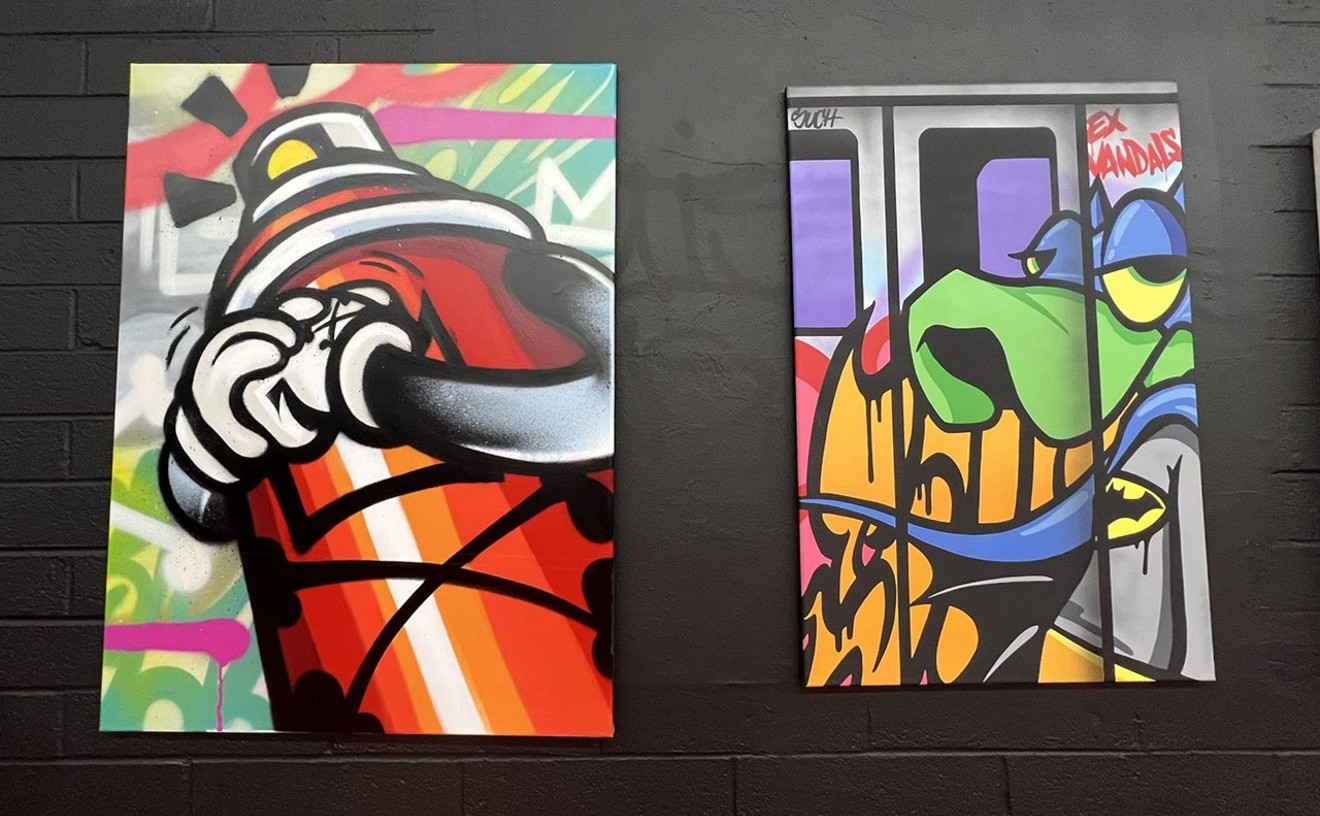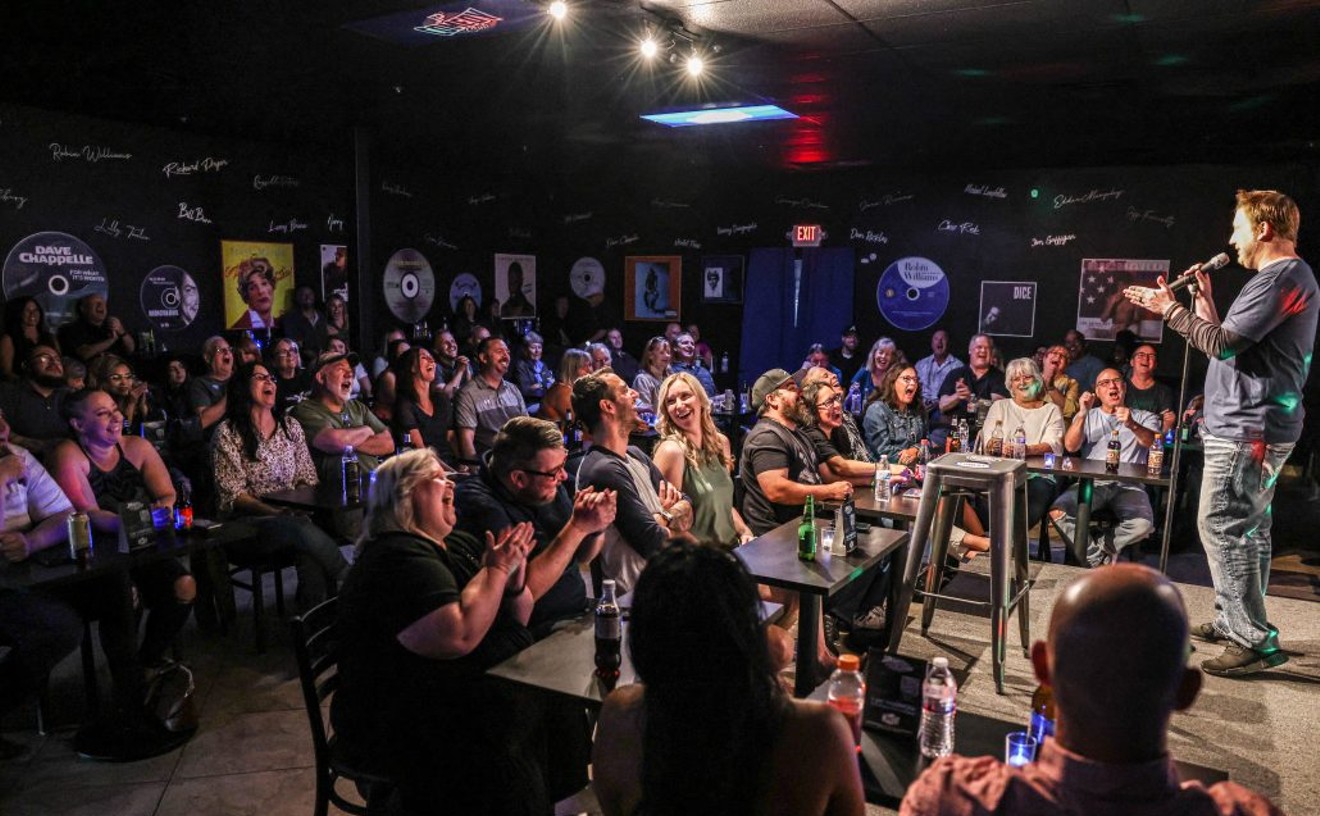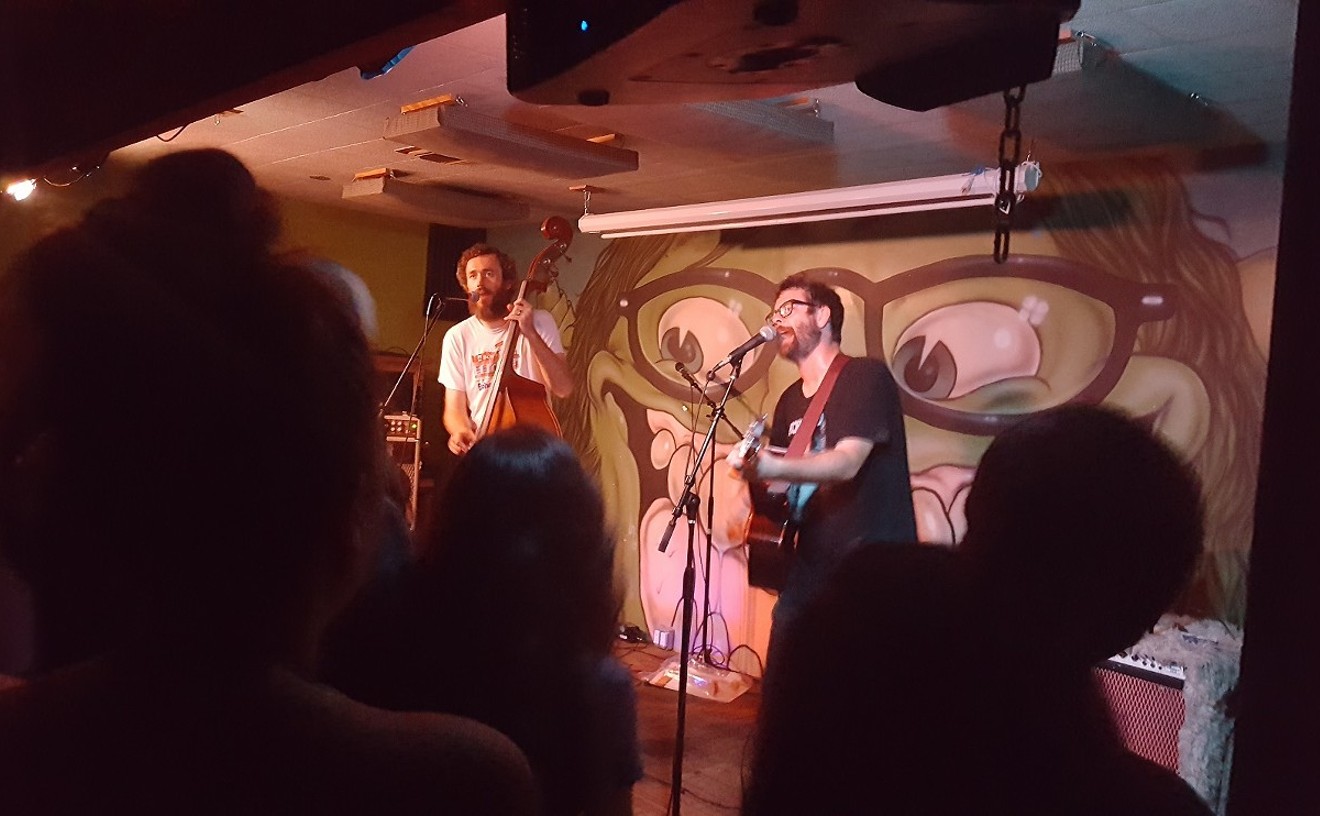New Times: Your brother was killed by Mesa police last December. What happened?
Tammie Hanson-Ferguson: Back in April of 2001, he'd gotten into some trouble in Gilbert and had a DUI and an assault charge. He was sentenced to the work-release program, but he didn't show up, so the police issued a warrant. They tried to pull him over two days after Christmas. He never went over the speed limit, and he signaled his lane changes, but he wouldn't pull over. When he did, he requested that only two police officers approach him. When he got out of the truck, there were many more officers than that, so he got back into his truck.
NT: Then they shot him. Why?
Hanson-Ferguson: The police were mad because he wasn't cooperating. They told him to put his hands up and get down on his knees, and he didn't. He knew they were mad, and he was afraid to get beat up. He was holding a cell phone, and the officers knew he was talking to 911 because 911 was relaying everything he was saying to the police. But they tried to say they thought it was a weapon, and that's why they fired. The officers claimed they were in fear of their lives.
NT: In both the Lovelace case and your brother's case, officers claimed self-defense, and a car was the weapon.
Hanson-Ferguson: It's a justification. They see it as, "Well, the vehicle moved, so that's my out." They're grasping at straws. Wade's truck never touched the police car until after they shot him. They told the media it was gunning toward them, but it really only rolled into the squad car after they killed him.
NT: And seven cops shot him?
Hanson-Ferguson: There were many more officers involved in the pursuit, but they narrowed it down to seven who fired -- officers who were behind him and in front of him and on the side. They shot away his whole mouth and chin. I went in and saw my brother in the hospital, and I'll never forget what I saw. It was unbelievable what those people did to him.
NT: It does seem like an excessive response to a slow police chase.
Hanson-Ferguson: That's because there's a lack of responsibility where leadership is concerned. There isn't a whole lot of accountability in any of the East Valley departments. I think it's interesting that the Mesa police chief is stepping down ever since the Republic reported on my brother's death. It's real strange timing.
NT: What's up with East Valley cops?
Hanson-Ferguson: They're so desperate to fill their quota of officers per capita that they're not training them adequately. They're putting them on the street too quickly, and they're teaching them a military style of policing. There's not enough emotional and psychological training. They're not learning how to talk to people, they're just learning, "If you fear for your life, pull your gun and shoot." In my brother's situation, there was no command system, nobody to intervene with these officers, whose anger was out of control. By comparison, Phoenix has the largest police department in the Valley, and more crime to deal with every day. Yet their officers handle things appropriately. Which proves that you can weed out bad officers in the hiring process.
NT: Speaking of weeds, Judy Harris, the wife of police chief Bobby Joe Harris, said about the spate of East Valley killer cops, "You plant a field and you get a few weeds. The bigger the field, the more weeds." But these are not huge police forces.
Hanson-Ferguson: It's a dumb metaphor. You can train a human being to modify their behavior, unless you don't care to.
NT: Guillermo Biascoechea, one of the officers who shot your brother, killed another man in October for a similarly slight infraction: The guy was running from police after they received a complaint of loud noise at his home.
Hanson-Ferguson: I was devastated when I heard that the same officer was back on the street and had shot someone else. Here we go again. This poor guy was also running because he was scared. When they cornered him, they told him to take his hands out of his pockets and, when he did, they shot him. Sound familiar?
NT: Officer Biascoechea is on paid leave.
Hanson-Ferguson: Yeah. He was on paid leave when my brother was killed. And Officer Lovelace is on paid leave until they terminate him, and he's been indicted by a grand jury. They continue to receive pay because the police department doesn't consider them at fault. They're furious with the attorney general for bringing charges against Officer Lovelace, because they said he was just doing his job.
NT: Are cops above the law in Mesa?
Hanson-Ferguson: I think there's a good-ol'-boy mentality among the officers, and nobody to tell them that what they're doing is wrong, that they just can't go around shooting people. They've been given free reign to do what they want.
NT: Maybe these cops are just trigger-happy. Or maybe they want to set an example, so that junkies won't try to pass forged prescriptions or guys with revoked licenses will pull over more quickly.
Hanson-Ferguson: It's a matter of a complete and utter lack of control of their emotions. They're angry, and not necessarily at the person they're pursuing. If you're trained to believe that your life is in danger when a truck is rolling slowly toward you, and you're not standing anywhere near the vehicle, something is wrong with the training. My brother was five-foot-nine and 145 pounds sopping wet, and there's no reason why those officers couldn't have taken him down.
NT: What do you want to see done to Officer Biascoechea?
Hanson-Ferguson: I'd like to see an unbiased investigation. And he needs to seek some psychological counseling. He's killed two people in a year, and he needs to understand that the public isn't going to put up with it anymore.
NT: You've filed a complaint with the City and hired an attorney. Is this about avenging the death of your brother?
Hanson-Ferguson: Please. I've made peace with the fact that he's gone. What needs to happen needs to happen to prevent another family losing a loved one. My life isn't about revenge; I have better things to do with my time. It's about making sure that what's right gets done, and what's wrong gets changed.
NT: You have to admit that your brother was breaking the law: driving on a revoked license, and refusing to stop when cops tried to pull him over.
Hanson-Ferguson: I had disagreements with my brother about the way he handled his life, but he was trying to get his life together. I never said Wade was perfect, but what happened to him was wrong. He didn't deserve it. People make mistakes, but they don't deserve to die for them.










